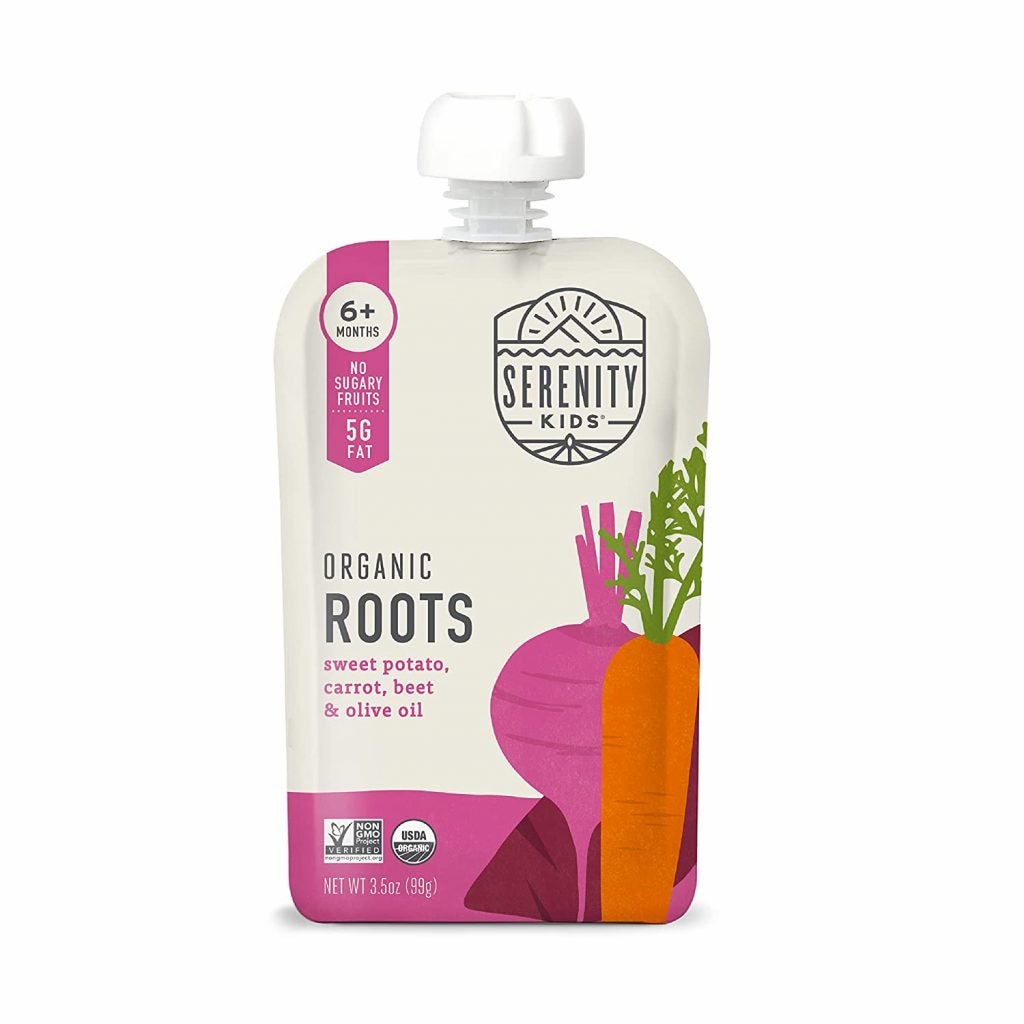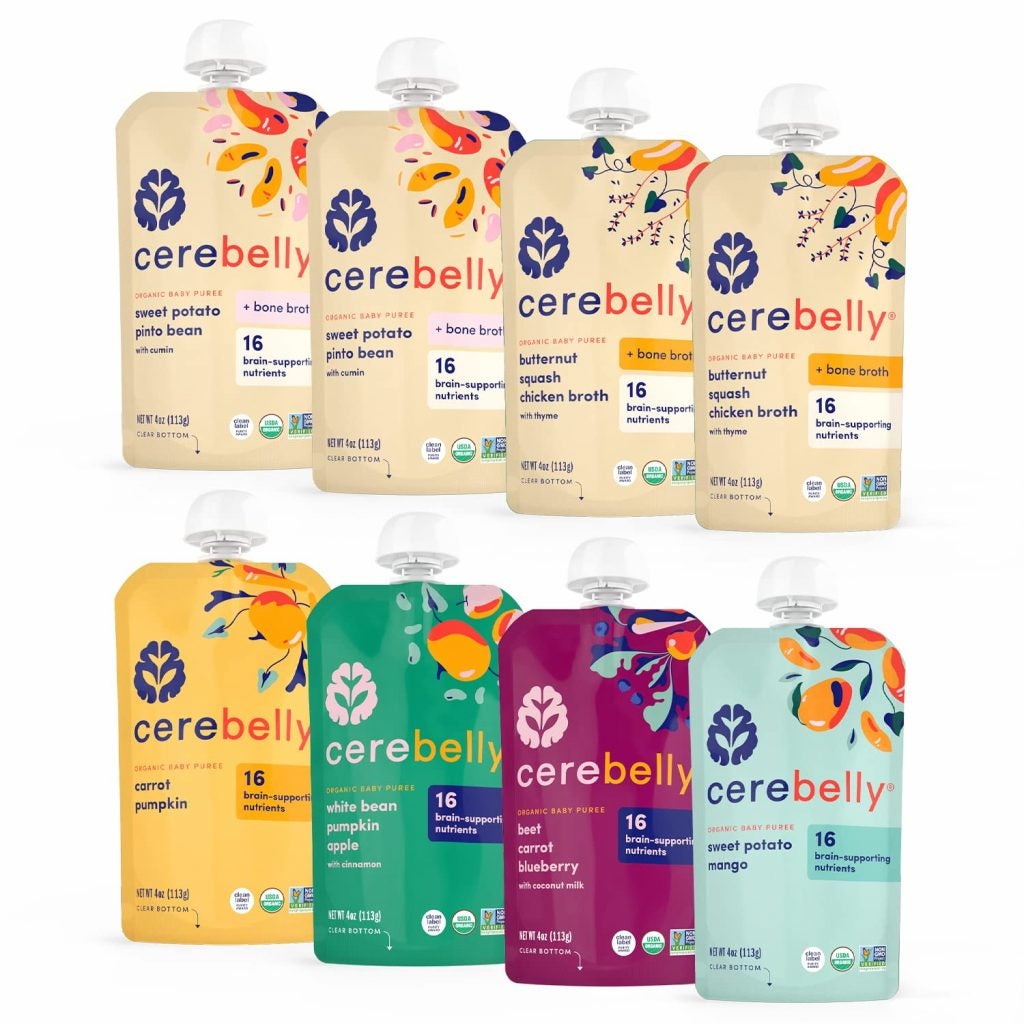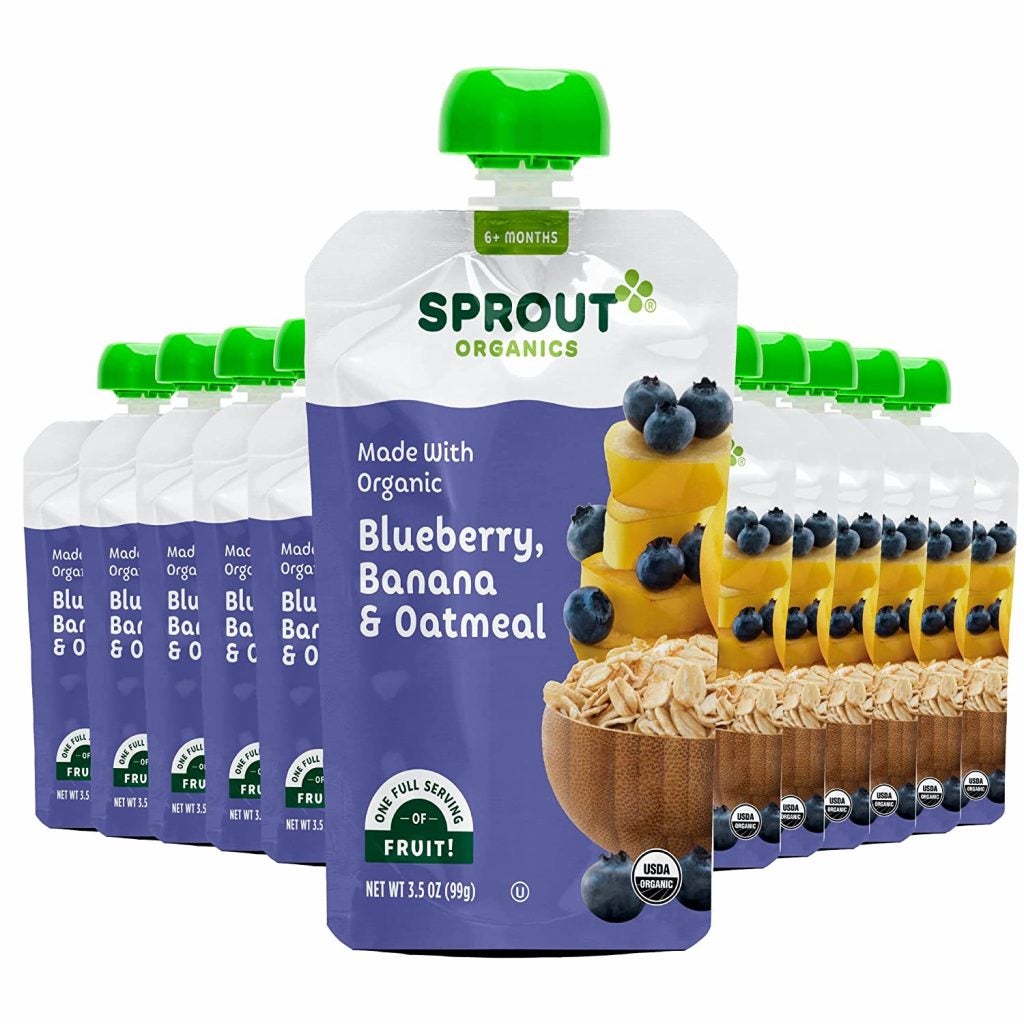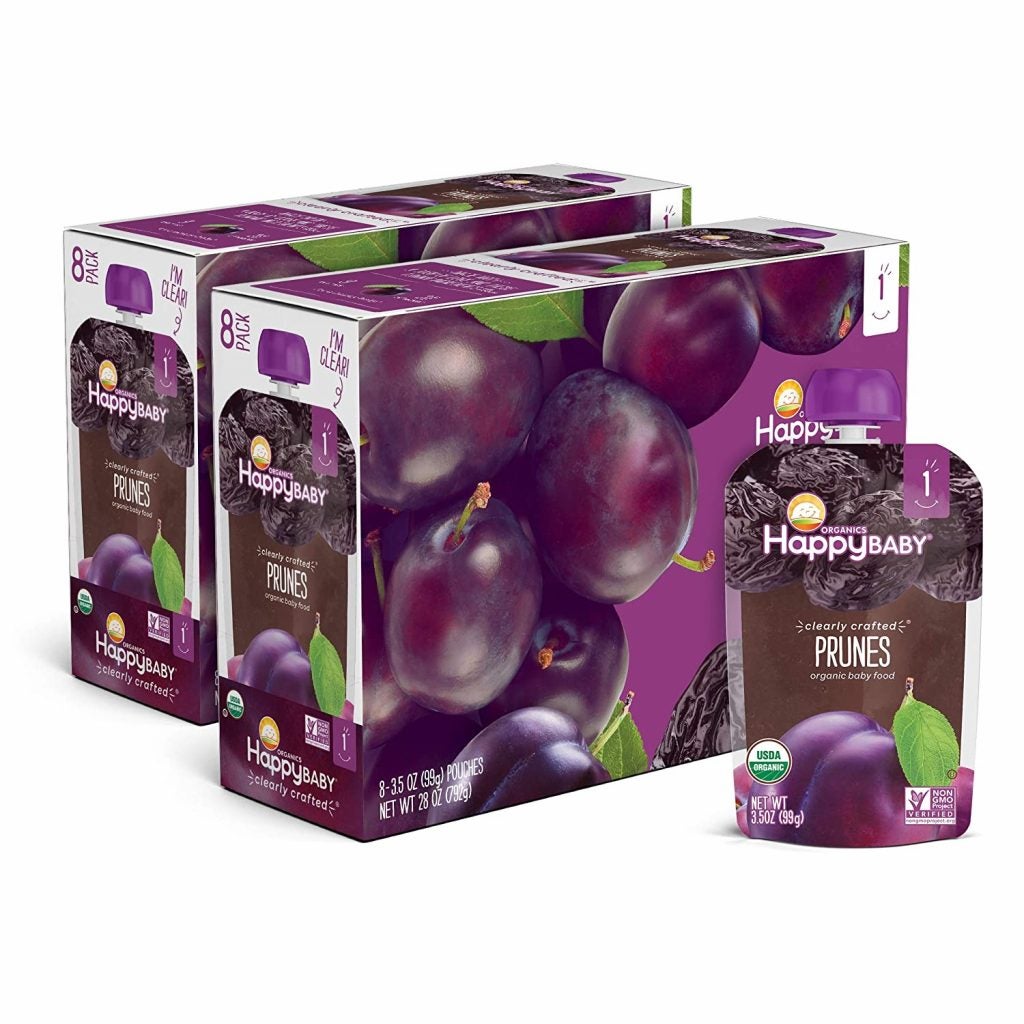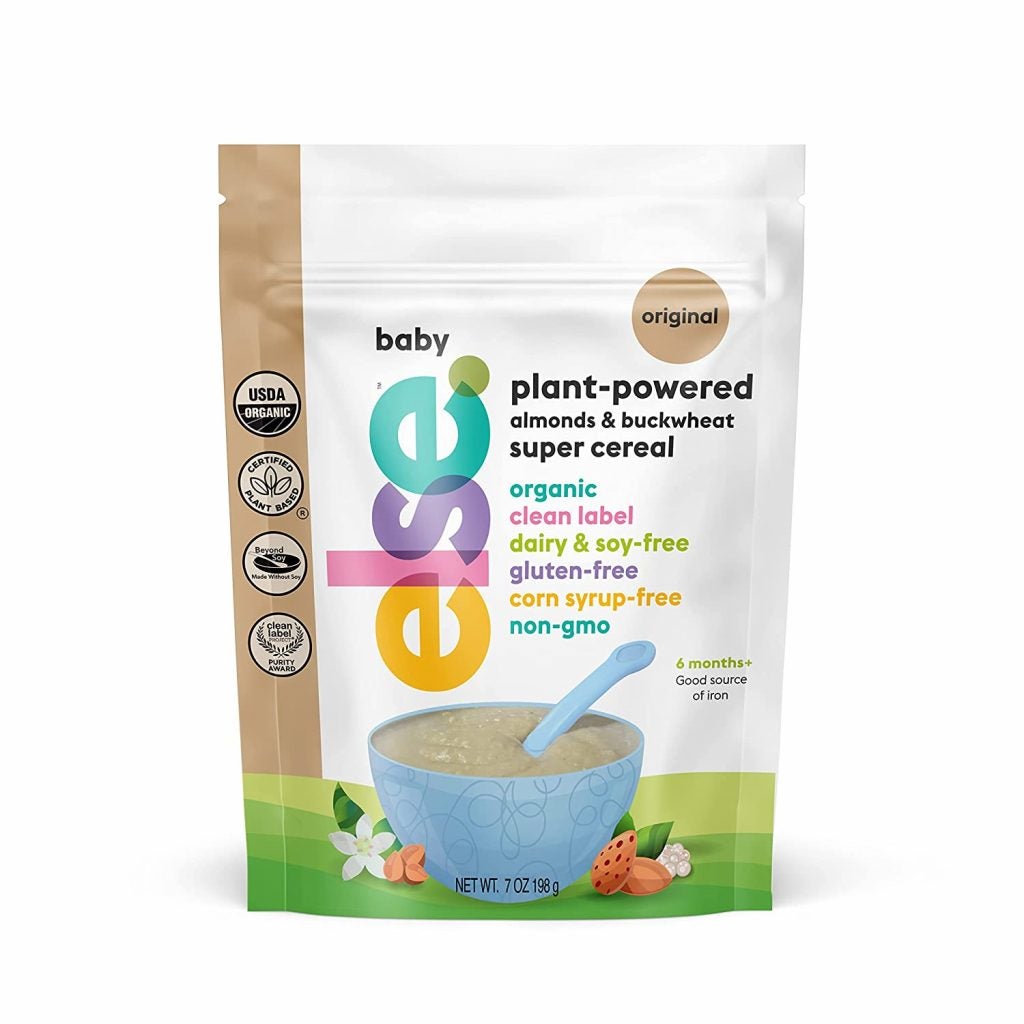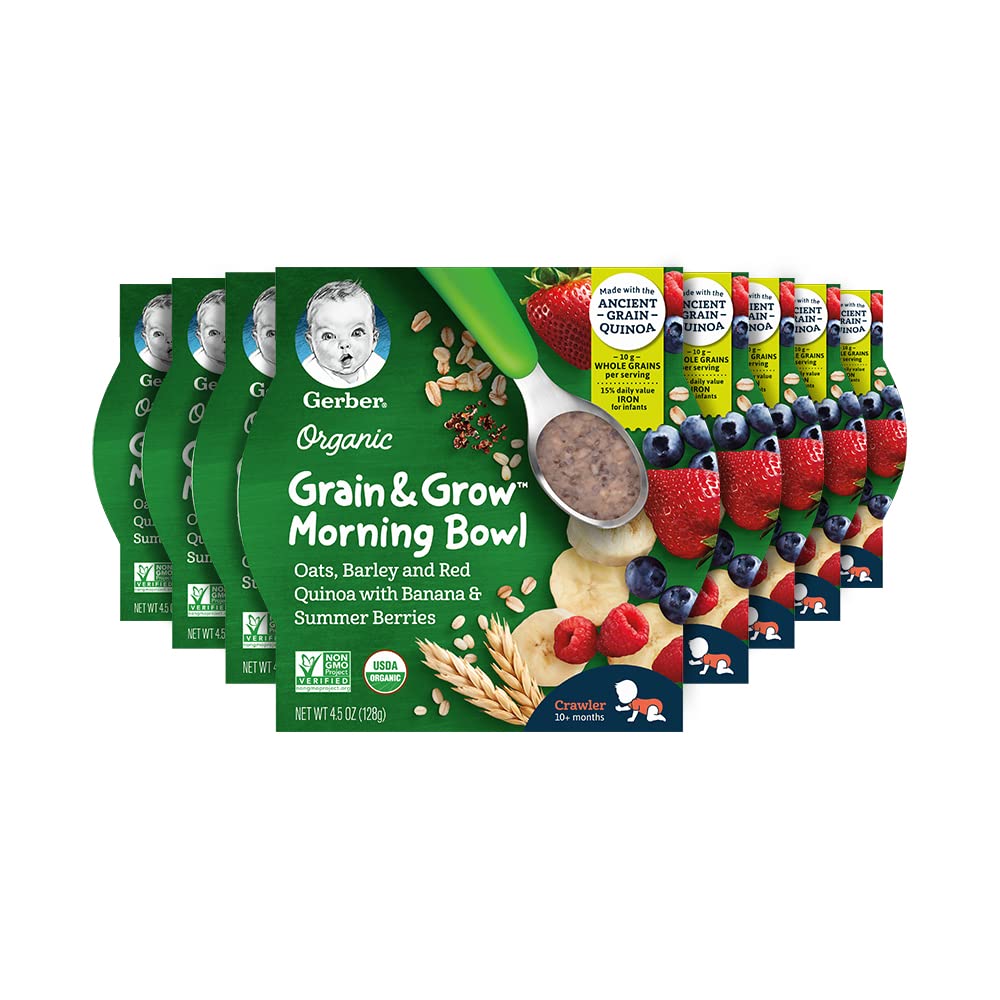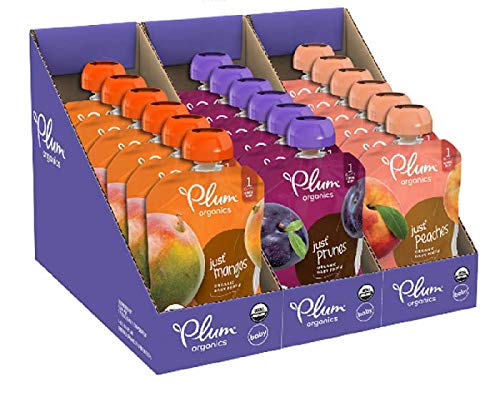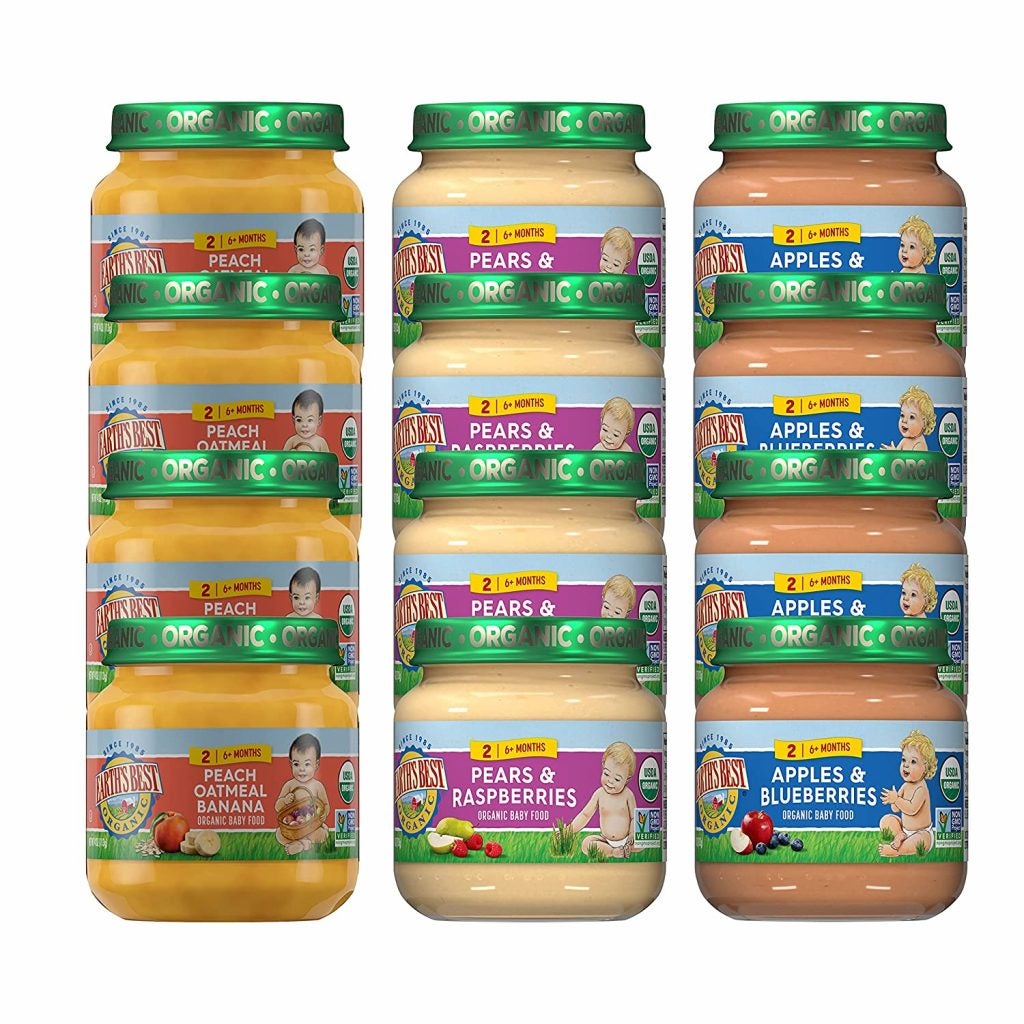Best Baby Food
You want to feed your baby the highest quality and most nutritious food at every stage of his or her development. When it is time to start feeding your little one solid foods, though, you might find yourself struggling a bit as you try to decide which direction to take. After all, this is a major change for both you and your baby, and you want to ensure that it will go as smoothly as possible.
The Benefits of Buying Baby Food for Your Little One
Sure, you can make your baby’s food right in your own kitchen using fresh ingredients. That’s a great way to go when you want to be in total control over the quality of the food that you are giving to your son or daughter. But it isn’t always possible to prepare homemade baby food. You might be too tired, you might not have all of the ingredients that you need on hand, or you just might be too busy. In those instances, having a good store-bought baby food can simplify things and give your baby the nutrition he or she needs to grow and thrive.
These days, there are a lot of baby food companies that you can choose from, so if your baby tries a food and hates it, don’t worry, as there are plenty of other options available. You can buy food in glass bottles or pouches, store them until you need them, and then just open them and serve them to your child without having to worry about preparing anything. It is super convenient and can save a lot of time and effort.
Make Your Decision Carefully
When it comes to anything that you buy for your baby, it is wise to take your time and do a bit of research before deciding on the product that you will go with. The same is true for baby food. You can ask your pediatrician for some advice and guidance regarding what you should feed your baby, and which baby food brands are best. That way, you can receive personalized tips for your unique child. In addition to that, you could read articles online and check out what other parents have had to say about a wide range of baby foods that are currently for sale.
Beyond reading up on baby foods and learning about which foods to give to your son or daughter to provide the right balance of nutrients, it is also smart to read food labels carefully. If you already do this when shopping for your own food, you are used to checking the little details on a packaged food to decide if it meets your needs and expectations. When shopping for baby food, reading a label can give you insight into the types of ingredients that are used, and you can also check the nutrition facts to see if a food meets your pediatrician’s recommendations for your baby.
As you shop, you will also notice that baby foods come in different types of packaging, so you can weigh the pros and cons of each type and make your decision based on what you prefer. These days, you can easily find BPA-free food packaging to give you greater peace of mind, so that is something else you can learn about a food by just reading its label.
Are You Ready to Look at Some of the Best Baby Foods Available?
Once you have carefully considered the type of baby food that you want to give your baby, you will find it easier to narrow down your options. Again, compare what’s out there based on what is in each food, from main ingredients to preservatives. Before you know it, you will find food that is just right for your baby.
To help you get started, we have compiled the list of baby foods below. Check out what these foods have to offer, as you might discover that one of them is the perfect food for your child.
1. Editor’s Choice: Serenity Kids 6+ Months USDA Organic Veggie Puree Baby Food Pouches
First on our list is the brand Serenity Kids. Their baby food pouches are a good option to consider for babies who are 6 months of age and older. You can choose from multiple flavors, and you can buy one pouch at a time to try it out or you could buy packs of pouches to have plenty on hand at all times. Plus, these pouches feature just a few simple ingredients, such as organic sweet potatoes, organic carrots, organic beets, organic olive oil, and water in the Roots flavor.
Pros:
- This baby food is USDA Organic and Non-GMO Project Verified.
- This food provides various nutrients, including healthy fats.
- This food doesn’t contain any gluten, rice, or grains.
Cons:
- Some babies might not like the texture or flavor of this food.
- This baby food is pricier than others.
2. Runner Up: Cerebelly Baby Food Pouches – Organic Bone Broth & Veggie Purees Variety Pack
Another great option to consider is the baby food pouches from Cerebelly. There are different varieties that you can choose from, and this food is USDA Organic, Non-GMO Project Verified, and packaged in BPA-free pouches. Your baby will get 16 nutrients that support the brain. Some flavors also contain bone broth, while others feature just fruits and vegetables.
Pros:
- This baby food is nut free and gluten free.
- This food received the Clean Label Purity Award.
- There is no added sugar in this baby food.
Cons:
- Some customer reviews were disappointed with the quality of the pouches this food is packaged in.
3. Best Organic: Sprout Organic Baby Food
If you are looking for organic baby food, you have many options, such as Sprout Organic Baby Food. There are several flavors to choose from, but this Blueberry Banana Oatmeal may be just right if you are looking for a food that combines healthy grains and fruits. The pouch is BPA-free, and this food does not contain any GMO ingredients, concentrates, or preservatives. Overall, this is a great place to start if you are looking for baby food with clean ingredients, as every ingredient is organic.
Pros:
- This baby food is USDA Organic.
- This food features just a few whole food ingredients and each one is organic.
- This food is packaged in BPA-free pouches.
Cons:
- The pouch this food comes in should not be microwaved or put in the freezer.
4. Best Single Ingredient: Happy Baby Organics Clearly Crafted Stage 1 Baby Food
When you want to keep things really simple, or when you want to introduce your little one to a new flavor, you can go for a baby food that features a single ingredient, like the options made by Happy Baby Organics. This food is Non-GMO Project Verified and USDA Organic. In the case of the Prunes flavor, the ingredients consist only of organic prune puree and organic lemon juice concentrate.
Pros:
- This food features one ingredient, making it a good choice when you want to avoid baby foods that contain a mix of ingredients.
- This food is conveniently packaged in a pouch.
Cons:
- Because of the minimal ingredients, it’s a good idea to purchase a variety of flavors to provide your baby with balanced nutrition.
5. Best Baby Cereal: Else Nutrition Super Cereal For Babies 6 mo+
There is a lot to like about the Else Nutrition Super Cereal, which is for babies who are 6 months and older. Not only is this baby food USDA Organic and non-GMO, but it is also free of dairy, soy, gluten, and corn syrup. It is certified plant-based, as well as a good source of iron, and it is made with whole food ingredients and minimally processed ingredients. Your baby can get a great mix of protein and healthy fats, as well as vitamins and minerals, along with carbs that are gluten-free.
Pros:
- This baby food received the Clean Label Project Purity Award.
- This is a baby cereal that features whole food ingredients.
- Your baby can get protein, carbohydrates, healthy fats, vitamins, and minerals from this cereal.
- This food is easy to prepare for your baby.
Cons:
- Some babies might not like the flavor of this cereal.
6. Best for Crawlers: Gerber Organic Grain & Grow Morning Bowl
When your baby is a bit older and ready to start eating new foods, you can try the Gerber Organic Grain & Grow Morning Bowl, which is USDA Organic, non-GMO, and ready to eat right out of the packaging. The simple ingredients include whole grains and nutritious fruits, and this food is also a good source of iron.
Pros:
- This food is ready to eat or you can serve it gently warmed.
- This food contains organic ingredients.
- This baby food can introduce new textures and tastes.
Cons:
- Keep in mind that this food is for babies 10+ months old.
7. Best Variety Pack: Plum Organics Baby Food Pouch
Yet another good choice when it comes to baby food that comes in a pouch is Plum Organics, and this variety pack is a good way to get multiple flavors at once at an affordable price. You get three flavors: mango, prune, and peach. You’re sure to love the fact that this food is USDA Organic and Non-GMO Project Verified, and its ingredients are simple too. For example, the Just Prunes flavor contains water and organic prune paste, while the Just Mangos flavor features organic mango puree and organic lemon juice concentrate.
Pros:
- This variety pack gives you multiple fruit flavors for your baby.
- The pouch that this baby food comes in is BPA-free.
- This can be a great choice if you’re looking for single ingredient baby food.
Cons:
- Some babies might not like these flavors if they find them to be too sweet.
Check Price
8. Best in a Jar: Earth’s Best Organic Stage 2 Baby Food
There are a lot of baby foods that are packaged in pouches these days, but if you would prefer getting baby food in a jar rather than a pouch, you do have options. As an example, you can consider checking out Earth’s Best, which makes a lot of flavors for your baby to try. This variety pack gives you three flavors to keep your baby satisfied with ingredients like pears, peaches, and apples. In addition to featuring organic ingredients, this food does not contain any artificial flavors, colors, or preservatives.
Pros:
- This baby food is USDA Organic and Non-GMO Project Verified.
- The combinations of ingredients are great for babies aged 6 months and up.
Cons:
- This baby food features more than one ingredient, so it isn’t the right choice if you’re looking for single ingredient food.
Things to look out for:
As mentioned above, there are several things to think about as you look for the best baby food for your son or daughter. And because there are so many diverse options out there these days, you might not even know where to begin when deciding on the food you will give to your growing infant. By keeping the following in mind, you might find it easier to get through this sometimes confusing and daunting process:
First off, consider whether you want to stick with baby foods that contain organic ingredients. Many brands today offer organic baby foods that feature a range of tasty ingredients, so you do have plenty of options. The same goes for non-GMO ingredients. Just bear in mind that the best way to know that a food is organic is by looking for the USDA Organic seal on the label. Reading through the ingredients will also tell you if there are any ingredients that are not organic.
Of course, whether you go with organic baby food or conventional baby food, you want to be sure that it is nutritionally balanced for your little one, and you want to give your infant whole food ingredients that are healthy. Remember, the ingredients will be listed by amount used, so the first ingredient will be the one that’s most abundant in the food and the last ingredient will be the least abundant.
Again, you can consult with your pediatrician to find out what your baby needs when it comes to various nutrients, as well as protein, fat, fiber, and carbohydrates. By reading nutrition facts labels, you can determine which baby foods will provide the required vitamins and minerals, as well as the appropriate amounts of macronutrients (protein, fat, and carbs) for the stage of growth that your baby is in.
In addition to looking for the things that you want, you also want to keep an eye on baby food labels to find out if they contain anything that you don’t want to give to your child. For instance, if you want to avoid artificial ingredients or added sugar or salt, make sure to read through ingredients lists carefully. The same is true if you want to avoid preservatives, colors, flavorings, etc.
Also, if your baby is allergic to any foods or your pediatrician has recommended against providing certain foods, read labels to ensure you make the right buying decision. Generally, you want to steer clear of foods that are not appropriate for your baby based on how old they are, so be sure to purchase age-appropriate foods too. For instance, when you are first making the switch to solid foods, it’s best to stick with single ingredients that are pureed to be easy to eat.
Yet another thing to consider is what a baby food is packaged in. BPA-free packaging is a good way to go, of course. But in addition to considering the safety of a food’s packaging, also consider how easy it will be to open and how easy it will be to store leftovers. Also, consider how much space you have to store the food, as some packaging might be designed to be more compact. And, no matter what, you definitely want the packaging to be able to keep your baby’s food fresh until it is time to eat it.
After you have done all of your research and narrowed your options, it might be a matter of trial and error to find the foods that your baby will enjoy eating. Like adults, babies want to eat things that taste good. You might think that your little one will love eating a particular ingredient, only to realize that he or she refuses to have it. Thankfully, because so many brands offer a wide range of foods, you may be able to stick with the same brand and just switch flavors.
Photo credit: margouillat photo/Shutterstock

